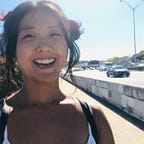Collective Silence and the Art of Forgetting
When I set out on my journey to understand generational trauma and my parents, I became very interested in what life was like for them. My father was born in 1957 and my mother in 1961. The Korean War Armistice was signed in 1953
I didn’t know where to turn for help because there is a language barrier between my mother and I (she only speaks broken English and I only speak broken Korean) and when I asked her what life was like growing up, I was brushed off. The same thing happened when I turned to my father.
So I went to pop culture.
First, I sought out Korean films, not the popular Korean dramas and cheesy movies, but the ones from the archives. There is a fantastic resource on Youtube called the Korean Film Archives that has “110 classic Korean films from the 1930s onwards available for free viewing”. These are some old and kickass art films, none of that pop bullshit. I didn’t even know Korea had a film scene back then.
For reference, some of the films I watched were:
You can tell a lot about a culture through their movies. From the thematic material you can deduce what the culture found important, the politics of the time, the humor, the mood of an era, the norms, etc.
As I dove more into the history and culture of my ancestors via these old black and white films, I saw a 20th century version of Korea I had never seen before, one that had dirt roads and peasants carrying baskets wearing funny shoes.
To me, the Korean War and a version of Korea that was impoverished seemed far, distant, and unreal. My parents had never discussed what it was like growing up for them.
“Why think about the past? People don’t like to talk about it. What matters is looking forward,” my cousin from Korea said when I asked, echoing very similar words about the past as my mother.
Perhaps people want to forget a painful past.
Ramsay Liem, a professor of psychology at Boston College and a 1st-generation Korean-American whose parents immigrated to the US in the 1930’s, directed a short film documentary called Memory of the Forgotten War and had this to say in reflecting on his film about the personal stories of four survivors of the Korean War:
“Most of all, there has been a silence about the war among us, even within families. This film is an attempt to get conversations started, or at the very least to bring these stories of people’s lives to our community and the wider public” (Smith, 2014).
He was inspired to look into this “collective silence” through his research, how certain populations cope with traumatic experiences with silence and forgetting (Smith, 2014).
It’s an incredible survival strategy.
The silence is such a key here that I hadn’t anticipated and am fearful of.
Even if it is buried, the past lives on through the generations, which is the whole reason why I am here writing this blog, doing this thing.
Ironically, when I was a kid, I intentionally forgot my Korean.
I was happy when my parents allowed me to quit going to Korean school on Saturdays and happy that they didn’t teach us Korean traditions or Korean holidays. I was happy that I could proudly claim how un-Korean I was because it seemed to prove how American I then must be.
Today, I watched Liem’s documentary and quickly found myself bawling, tears streaming down my face, while the survivors shared the stories of families split up and identities forgotten.
I was surprised to find myself so readily moved.
Perhaps there are memories inside of me from generations past that are stirring and the dissociated relationship I have had with my heritage are growing more connections.
I am setting an intention to learn Korean in the next year so I can speak with my mother.
I’m remembering my mother tongue so I can speak with my mother.
References
Smith, Sean. Keeping Memories Alive. BC News. 30 Jan. 2014. Web. 25 Sep. 2021. <https://www.bc.edu/bc-web/bcnews/news-archive/2014/topstories/_ramsay-liem-documentary-on-korean-war.html>
